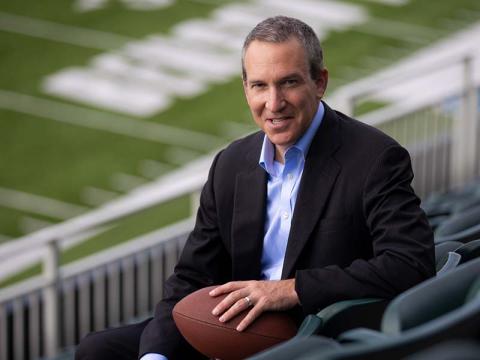Tulane sports law expert Gabe Feldman explains the new era of compensation for college athletes
A new era in college athletics began on July 1, 2021, and the landscape of college athletics has shifted for the nation’s student-athletes. For the first time in the 100-year history of the NCAA, college athletes can now receive almost unlimited compensation, including the use of their name, image and likeness (NIL). It’s a time unlike any other in the history of college sports and the beginning of a period of great uncertainty.
In recent months, topics such as the NLI and the landmark Supreme Court decision in Alston vs. the NCAA, which ruled against NCAA restrictions that prohibited college athletes from receiving non-cash compensation for academic-related purposes, have dominated the conversation about college sports. There are few guidelines for policing these new money-making opportunities, and questions remain about how this era will affect rules governing amateur sports. The NCAA has turned to the federal government for help with NIL while leaving the conferences and institutions to oversee their athletes’ NIL deals. What will happen to the decades-long system that has controlled the multibillion-dollar industry that is college athletics? What does the future hold for the NCAA, and is this the beginning of a new wild west for college athletics?
Tulane University’s Gabe Feldman, the Sher Garner Professor of Sports Law, director of the Tulane Sports Law program and co-founder and co-director for the Tulane Center for Sport, is one of the leading voices in the U.S. in the field of sports law. Feldman recently spoke to Tulane’s On Good Authority podcast about college athletics’ new, profiting landscape.
“The NCAA now allows college athletes to receive compensation from third parties for the use of their name, image and likeness, or NLI,” Feldman said. “This is the biggest change in college athlete rights in our lifetime because of the very hard line the NCAA had previously drawn against athlete compensation. Now, a fundamental pillar has been removed. College athletes now have exponentially more rights to monetize their NIL, which means they can do commercials, endorsement deals, social media appearances, get paid for their autograph, host camps and clinics and promote themselves. In other words, they can do anything that every other student on campus and every other person in this country was allowed to do, but now without fear of repercussion from the NCAA or the conferences.”

